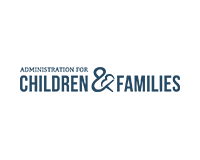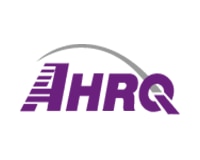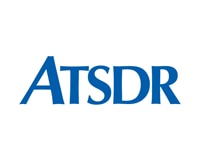HHS has 11 operating divisions, including eight agencies in the U.S. Public Health Service and three human services agencies. These divisions administer a wide variety of health and human services and conduct life-saving research for the nation, protecting and serving all Americans.
The Office of the Secretary (OS), HHS’s chief policy officer and general manager, administers and oversees the organization, its programs, and its activities. The Deputy Secretary and a number of Assistant Secretaries and Offices support OS.
Administration for Children and Families (ACF)

The Administration for Children & Families promotes the economic and social well-being of families, children, individuals and communities through a range of educational and supportive programs in partnership with states, tribes, and community organizations.
Administration for Community Living (ACL)

The Administration for Community Living increases access to community support and resources for the unique needs of older Americans and people with disabilities.
Agency for Healthcare Research and Quality (AHRQ)

The Agency for Healthcare Research and Quality's mission is to produce evidence to make health care safer, higher quality, more accessible, equitable, and affordable, and to work within HHS and with other partners to make sure that the evidence is understood and used.
Agency for Toxic Substances and Disease Registry (ATSDR)

The Agency for Toxic Substances and Disease Registry prevents exposure to toxic substances and the adverse health effects and diminished quality of life associated with exposure to hazardous substances from waste sites, unplanned releases, and other sources of environmental pollution.
Assistant Secretary for Administration (ASA)
ASA provides leadership for HHS departmental management, including human resource policy and departmental operations.
Assistant Secretary for Financial Resources (ASFR)
ASFR provides advice and guidance to the Secretary on budget, financial management, acquisition policy and support, grants management, and small business programs. It also directs and coordinates these activities throughout the Department.
Assistant Secretary for Health (ASH)
ASH advises on the nation's public health and oversees HHS' U.S. Public Service (PHS) for the Secretary.
Assistant Secretary for Legislation (ASL)
ASL provides advice on legislation and facilitates communication between the Department and Congress.
Assistant Secretary for Planning and Evaluation (ASPE)
ASPE advises on policy development and contributes to policy coordination, legislation development, strategic planning, policy research, evaluation, and economic analysis.
Assistant Secretary for Preparedness and Response (ASPR)
ASPR advises on matters related to bioterrorism and other public health emergencies.
Assistant Secretary for Public Affairs (ASPA)
ASPA provides centralized leadership and guidance on public affairs for HHS' staff, operating divisions, and regional offices. APSA also administers the Freedom of Information and Privacy Act.
Center for Faith-Based and Neighborhood Partnerships (CFBNP)
CFBNP leads the department's efforts to build and support partnerships with faith-based and neighborhood organizations to better serve individuals, families and communities in need.
Centers for Disease Control and Prevention (CDC)

The Centers for Disease Control and Prevention, part of the Public Health Service, protects the public health of the nation by providing leadership and direction in the prevention and control of diseases and other preventable conditions, and responding to public health emergencies.
Centers for Medicare & Medicaid Services (CMS)

The Centers for Medicare & Medicaid Services combines the oversight of the Medicare program, the federal portion of the Medicaid program and State Children's Health Insurance Program, the Health Insurance Marketplace, and related quality assurance activities.
Departmental Appeals Board (DAB)
DAB provides impartial review of disputed legal decisions involving HHS.
Food and Drug Administration (FDA)

The Food and Drug Administration, part of the Public Health Service, ensures that food is safe, pure, and wholesome; human and animal drugs, biological products, and medical devices are safe and effective; and electronic products that emit radiation are safe.
Health Resources and Services Administration (HRSA)

The Health Resources and Services Administration, part of the Public Health Service, provides health care to people who are geographically isolated, economically or medically vulnerable.
Immediate Office of the Secretary (IOS)
IOS oversees the Secretary’s operations and coordinates the Secretary’s work.
Indian Health Service (IHS)

The Indian Health Service, part of the Public Health Service, provides American Indians and Alaska Natives with comprehensive health services by developing and managing programs to meet their health needs.
National Institutes of Health (NIH)

The National Institutes of Health, part of the Public Health Service, supports biomedical and behavioral research with the United States and abroad, conducts research in its own laboratories and clinics, trains promising young researchers, and promotes collecting and sharing medical knowledge.
Office for Civil Rights (OCR)
OCR ensures that individuals receiving services from HHS-conducted or -funded programs are not subject to unlawful discrimination, that individuals and entities can exercise their conscience rights and religious freedom, and that individuals can access and trust the privacy and security of their health information.
Office of Global Affairs (OGA)
The HHS Office of Global Affairs provides leadership and expertise in global health diplomacy to contribute to a safer, healthier world.
Office of Inspector General (OIG)
OIG protects the integrity of HHS programs as well as the health and welfare of the program participants.
Office of Intergovernmental and External Affairs (IEA)
IEA represents the both the government and external perspective in federal policymaking and clarifies the federal perspective to government officials and external parties.
Office of Medicare Hearings and Appeals (OMHA)
OMHA administers nationwide hearings for the Medicare program.
Office of National Security (ONS)
ONS manages Department-wide programs and provides oversight, policy direction, standards, and performance assessments in the areas of intelligence, counterintelligence, insider threat, cyber threat intelligence, information security, national personnel security, homeland security, and the safeguarding of classified information.
Office of the Chief Technology Officer (CTO)
The Office of the CTO harnesses the power of data, technology, and innovation to create a more modern and effective government that works to improve the health of the nation.
Office of the General Counsel (OGC)
OGC provides quality representation and legal advice on a wide range of highly visible national issues.
Office of the National Coordinator for Health Information Technology (ONC)
ONC provides counsel for the development and implementation of a national health information technology framework.
Substance Abuse and Mental Health Services Administration (SAMHSA)

The Substance Abuse and Mental Health Services Administration, part of the Public Health Service, improves access and reduces barriers to high quality, effective programs and services for individuals who suffer from or are at risk for addictive and mental disorders, as well as for their families and communities.

